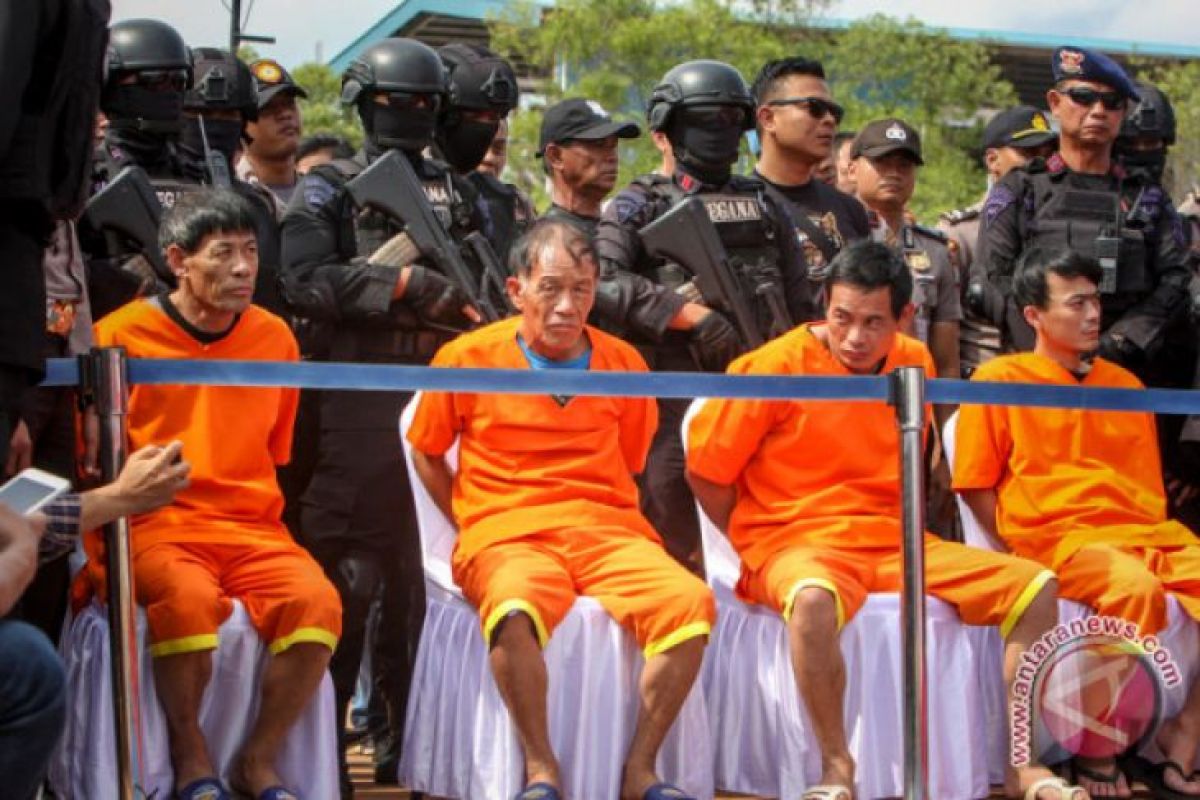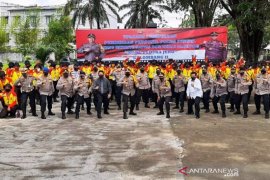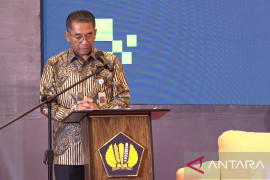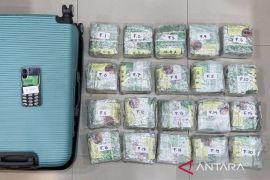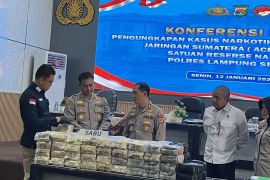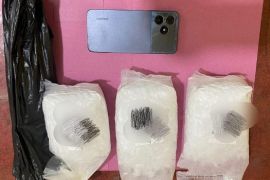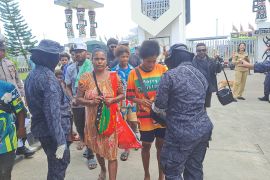Transnational organized crime and drug trafficking are undermining security in many regionsBogor, W Java (ANTARA) - Drug trafficking has emerged as a major threat for Indonesia through the decades, and the crime continues unabated even at a time when Indonesians are reeling from the life-threatening novel coronavirus disease (COVID-19) pandemic.
Even in such a scenario, drug dealers and those behind the drug crimes continue to disregard the gravity of the pandemic situation in their endeavors to gain profits from the sales of illicit drugs.
They continue to commit drug crimes without a care for the impact on human lives and Indonesia's future, as they target people from across communities and distinct socio-economic and cultural backgrounds.
"Transnational organized crime and drug trafficking are undermining security in many regions," the United Nations Office on Drugs and Crime (UNODC) had warned.
They had also evolved into "major threats to political and social stability, the rule of law, human rights and economic development" (UNODC, 2011).
In Indonesia, drug rings have consistently targeted youngsters and members of the productive-age population in communities. Hence, drug addiction is perceived to have posed a grave threat to the nation's future.
In addressing this challenging situation, the National Narcotics Agency (BNN) not only cracks down on drug syndicate members but it also supports preventive measures to save young Indonesians from getting siphoned into drug addiction and crimes.
A shining example is the BNN-North Maluku Office that has supported endeavors to enable millennials in the province hone their creativity to safeguard them from the culprits of drug crimes.
On Sunday (Oct 4), Head of the BNN-North Maluku Office Brig. Gen. M. Arief Ramdhani had partaken in the Mini Kulaba Festival held in the Kulaba tourist area, Ternate City, to launch a campaign for local millennials to stop the use of drugs.
Ramdhani joined several youths to perform Bambu Gila, a traditional Maluku dance, at the festival.
Meanwhile, the BNN-Southeast Sulawesi Office initiated a tailoring and beauty parlor training program for millennials residing in the Mandonga neighborhood of Mandonga Sub-district, Kendari City.
The training program is part of the agency's endeavors to hone the life skills of youngsters to help them evolve into creative, healthy, and drug-free members of the community.
According to Head of the Prevention and Community Empowerment Unit at the BNN-Southeast Sulawesi Office Harmawati, the tailoring and beauty parlor training program on Oct 20-22, 2020, will involve 15 participants.
"This training program is expected to protect our young members of the community from being dragged into the vicious circle of drug abuse," she emphasized.
BNN's endeavors to save millennials from drug addiction should be lauded since drug lords have not merely targeted them as consumers but have also recurrently recruited them as drug couriers.
In Jakarta, the South Jakarta Metropolitan Police apprehended seven members of a drug syndicate that had sold dried cannabis to university students in the West and South Jakarta areas over the past year.
South Jakarta Deputy Police Chief Adjunct Sen. Coms. Choiron El Atiq informed journalists last July that the suspects belonged to a university drug syndicate network. They sold illicit drugs to students directly and through an online service.
Three of the seven suspects are students of a publicly owned university, situated in the Meruya neighborhood, West Jakarta, while the four others are identified as an App-based "ojek" driver, a university graduate, and two workers.
The "ojek" driver, identified as AS, transported the marijuana packages to consumers, he remarked, adding that all suspects were arrested after the police investigators received a tip-off on drug dealing in South Jakarta.
The suspects confessed to police investigators that they could sell a half kilogram of dried marijuana to the targeted students. Five grams of marijuana were sold at Rp300 thousand.
The drug raid operation, conducted by the local police last July, resulted in the seizure of four kilograms of dried cannabis and 14 small packs of marijuana for sale, he affirmed.
Drug dealers recruiting teenagers as couriers could also be found in South Kalimantan Province.
South Kalimantan Police's Anti-Drug Department revealed that a local drug ring had also roped in a 15-year-old teenager as a courier following the arrest of a suspect, only identified by his initials as RD.
The South Kalimantan Police's anti-drug squad member, Adjunct Senior Commissioner Sigit Kumoro, expressed serious concerns over RD's case since the suspect was likely recruited by drug dealers as a courier after becoming a regular drug user. By working as a drug courier, RD could get drugs to feed his addiction.
For salvaging Indonesia's children and teenagers from the traps of drug dealers, Kumoro has called to edify them on the dangers of drugs to raise their understanding and awareness.
UNODC Executive Director Yury Fedotov’s calls made nine years ago at national and international levels still hold relevance.
Speaking at a security council meeting in New York in November 2011, Fedotov highlighted the significance of "coordinated and concerted efforts" to address the threats of transnational organized crimes, including those posed by transnational drug rings.
EDITED BY INE
Related news: West Sumatra police nab 126 drug dealers and couriers in a month
Related news: Two drug dealers nabbed in Riau; 13 kg drugs seized
Editor: Fardah Assegaf
Copyright © ANTARA 2020
